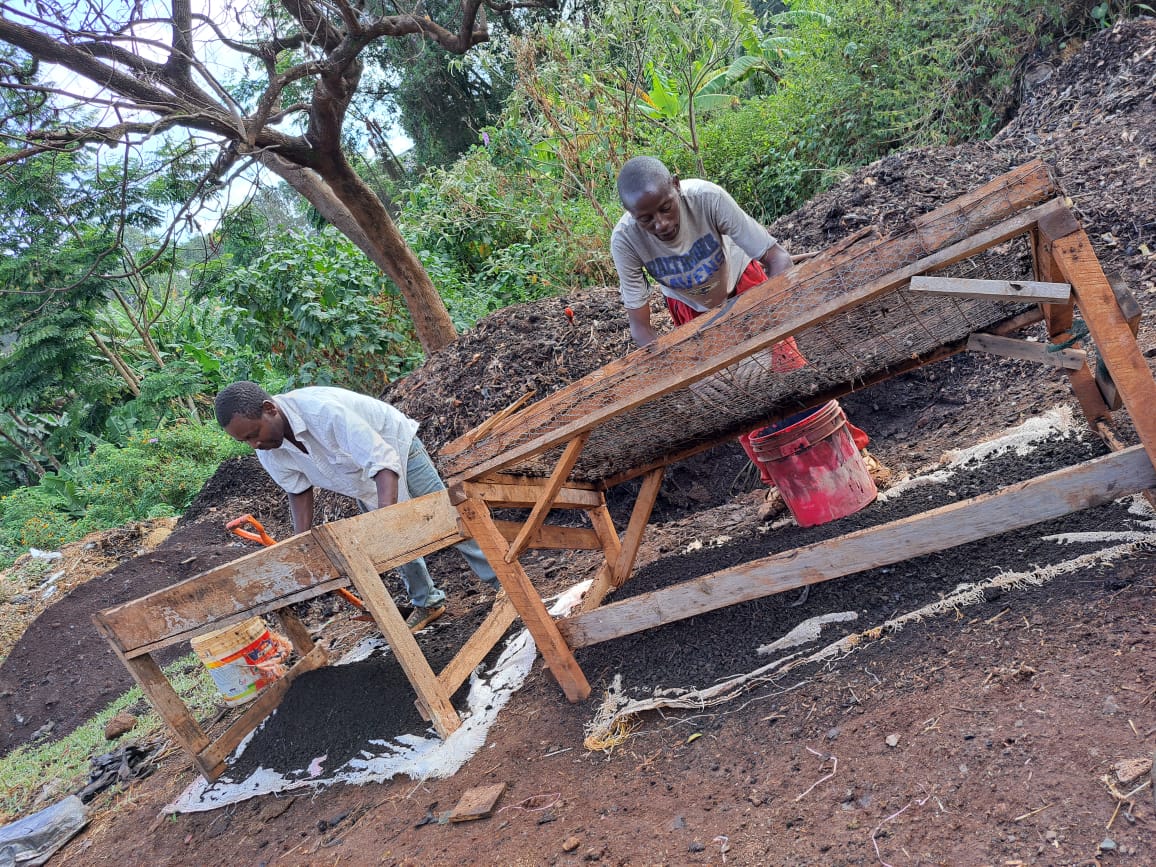
Kenyan startup turns organic trash into nutrient-rich, eco-friendly treasure
When landscapers, farmers, and garbage collectors drop off trash at PwaniViews Garden Centre Limited, owner Eva Ng’ang’a sees a treasure trove of potential.
“This is not rubbish,” she says with a smile, “it’s a resource.”
Eva Ng’ang’a, the founder of PwaniViews Garden Centre, has transformed a simple idea into a pioneering green enterprise. Her startup in Kiambu County, Kenya, goes beyond growing potted plants, and making hardscapes. It also converts organic waste into nutrient-rich compost, creating a sustainable solution for gardening and farming.
From waste to wealth
The process begins with meticulous sorting. Non-biodegradable materials like plastics and metals are removed, as are certain biodegradable materials such as cooked food. The remaining organic waste, including leaves, wood ash, and coffee husks, is then combined in a precise mix to create compost.
“It’s a very clean exercise,” Ng’ang’a emphasizes.
Ng’ang’a’s inspiration came from a need for a superior potting mix. The local red soil, prevalent in Kiambu County, lacks the nutrients and drainage for optimal plant growth. By mixing red soil with manure and compost, she creates a rich potting mix that supports plant health for up to three years.
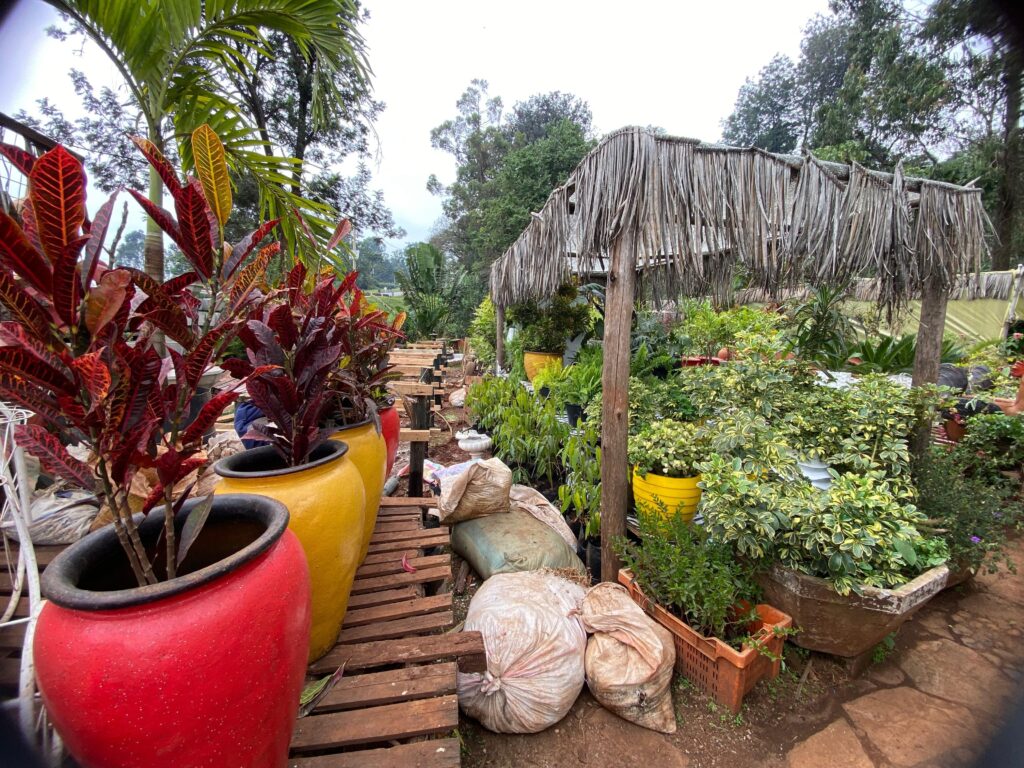
A gardener’s passion
Her dedication to quality extends to every aspect of her work. For large landscaping projects, she uses a blend of sand, compost, and manure to ensure the lawn grass thrives. She also incorporates liquid seaweed, an organic foliar feed, to nourish plants biweekly.
“We wanted to give our customers a good quality product,” she explains.
Despite initial resistance due to cost—200 Kenyan shillings for a 20-liter bucket and 800 Kenyan shillings for a 90-kilogram sack—those who understand its long-term value readily invest in her compost.
Cultivating community and the environment
PwaniViews is more than just a business; it’s a community initiative. Ng’ang’a employs local youths to collect landscaping waste and wood ash from Kiambu County gated communities. The work provides them with income and helps clean the environment. One such worker, Turu, gathers wood ash from local food kiosks and sells it to PwaniViews.
The composting process is intensive. They use leaves which give nitrogen, wood ash which gives carbon, and coffee husks which speed up decomposition. The wood ash balances the compost since it is alkaline. Water from a nearby river is used in the mix. Larger leaves are cut into fine pieces to speed up the decomposition process. By the next day, the organic mix is hot enough to burn flesh.
Three times a week, Ng’ang’a and her team add water to the compost heap while tossing and turning it. Within a month or two, they get a very rich compost. Within two months, the mixture transforms into nutrient-rich compost with an earthy smell, a stark contrast to the odour of improperly decomposed waste.
Facing and overcoming challenges
Ng’ang’a’s journey has not been without obstacles. Acquiring materials like coffee husks can be difficult, as farmers often use them for their purposes. Sourcing wood waste from local furniture companies is also inconsistent. In addition, getting capital to source the compost raw materials is a challenge.
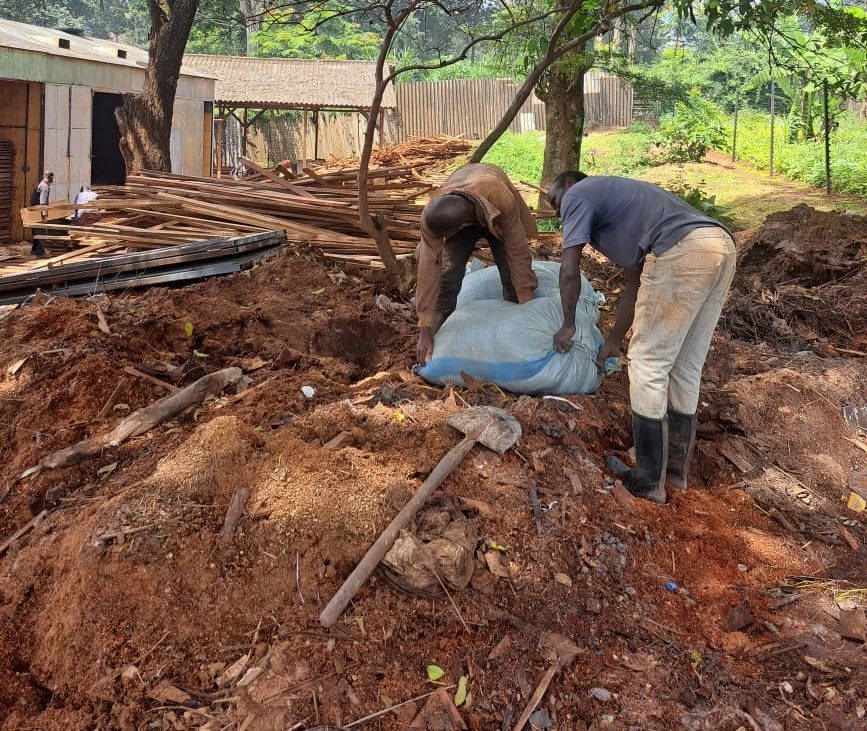
Her big dream is to acquire enough land to create high-quality compost on a large scale. She also wants customers to understand its benefits. She envisions expanding her sourcing network to include rice husks and sugarcane to enhance her compost further.
A vision for the future
Ng’ang’a’s work with PwaniViews contributes to a greener environment and promotes sustainable agriculture. Compost, which she affectionately calls “black gold,” improves soil structure, reduces erosion, and provides essential nutrients for plants.
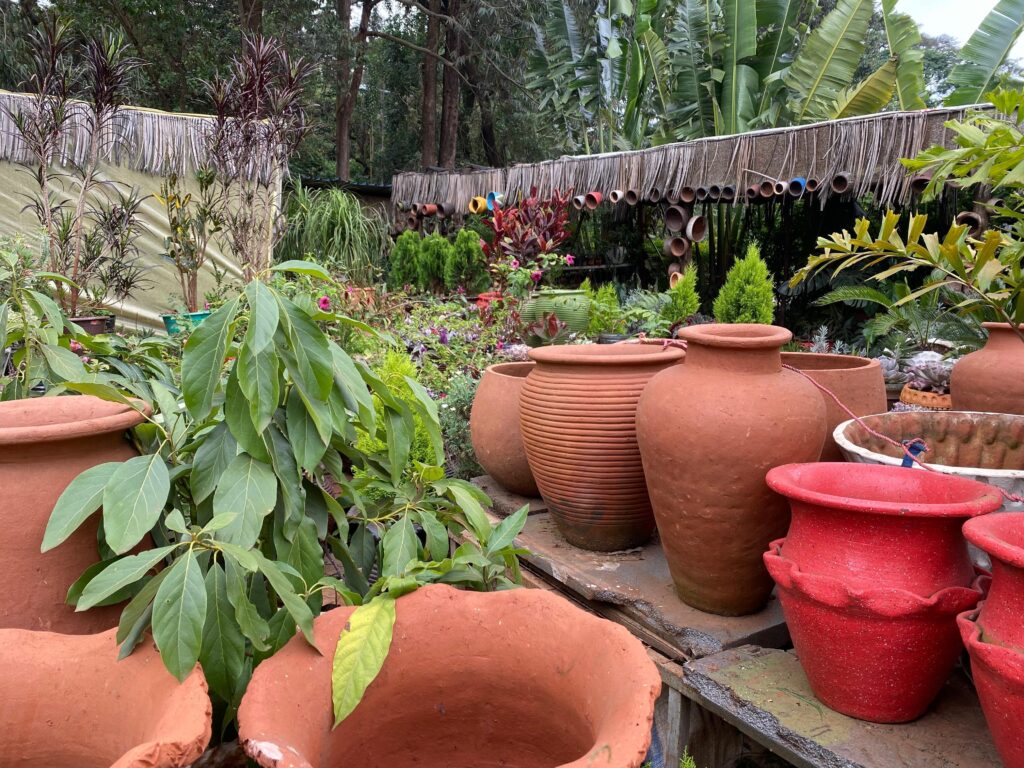
“Composting is about reducing, reusing, and recycling,” Ng’ang’a says.
Her commitment to this eco-friendly practice helps mitigate the effects of climate change by reducing reliance on inorganic fertilisers, which can harm the environment.
Ng’ang’a notes that Kiambu County has a lot of landfills that could generate revenue for the county if they were used for compost.
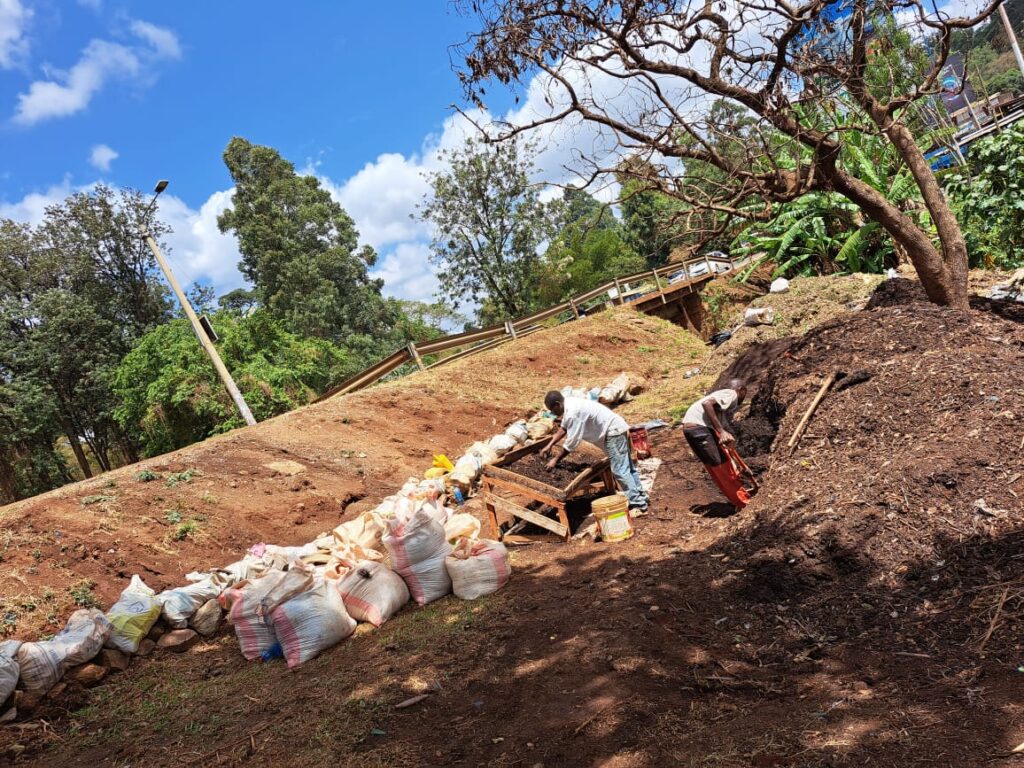
“Compositing is the eco-friendly way to reduce landfills. It is also about enriching the soil naturally,” Ng’ang’a says.
Changing lives
One of Ng’ang’a’s clients, Caroline Wanjiru, owner of Outdoor Paradise, highlights the difference PwaniViews compost makes.
“I like Eva’s compost because it’s treated. I don’t have to worry about pests, and the roots breathe well,” she says, showing off healthy plants thriving in Ng’ang’a’s compost.
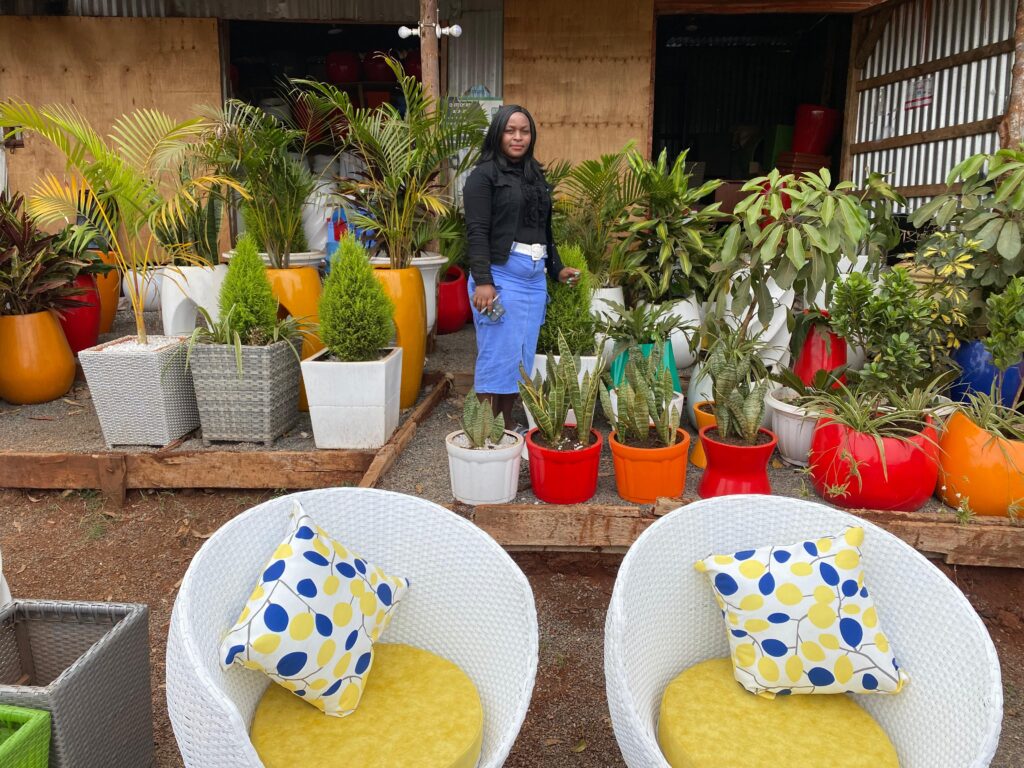
“Composting is not just about making soil better, it’s about creating something valuable from what others discard. It’s about giving back to the earth and teaching others to do the same, Ng’ang’a, says.
Her dedication to her work is a testament to the power of innovation and perseverance. Through PwaniViews, she is turning trash into treasure, creating a sustainable future for Kenya’s agriculture, and inspiring others to follow in her footsteps.






